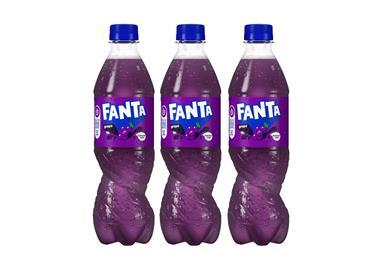Israeli producers have hit back at TUC plans to organise a boycott of goods from the occupied territories, arguing it will harm innocent growers.
At its congress last week the union voted in favour of action aimed at goods from the occupied territories, which would primarily be agricultural produce, and at companies involved in the region. A wide range of fruit, veg and flowers from the West Bank region are sold in UK stores.
The TUC is considering how best to implement a campaign and is expected to finalise plans within the next few weeks.
"To increase the pressure for an end to the Israeli occupation of Palestinian Territories ... we will support a boycott of those goods and agricultural products that originate in illegal settlements through developing a targeted consumer-led boycott campaign working closely with the Palestine Solidarity Campaign," read a TUC general council statement. The move was not intended to harm ordinary Palestinian and Israeli workers, but was aimed at the businesses working in the area, it insisted.
Despite the TUC's assurances, any boycott would end up harming farmers and growers rather than those with political influence, argued a spokeswoman for Israeli exporter Carmel Agrexco. "This [sort of action] affects Israelis, Arabs and Palestinians," she said.
"Carmel is a non-political organisation that needs to get good returns to all its growers. It's very sad for all the growers who are working side by side with one another."
Defra said it considered boycotts of produce from the troubled region as unhelpful. A spokesman for the department said it was working with the industry to develop a voluntary system of transparent labelling to ensure consumers knew if produce had been sourced from occupied territories.
"We are currently working up draft voluntary guidance for labelling that would give as much information as possible to consumers," he said.
Second Opinion: The crops stolen from Palestine
At its congress last week the union voted in favour of action aimed at goods from the occupied territories, which would primarily be agricultural produce, and at companies involved in the region. A wide range of fruit, veg and flowers from the West Bank region are sold in UK stores.
The TUC is considering how best to implement a campaign and is expected to finalise plans within the next few weeks.
"To increase the pressure for an end to the Israeli occupation of Palestinian Territories ... we will support a boycott of those goods and agricultural products that originate in illegal settlements through developing a targeted consumer-led boycott campaign working closely with the Palestine Solidarity Campaign," read a TUC general council statement. The move was not intended to harm ordinary Palestinian and Israeli workers, but was aimed at the businesses working in the area, it insisted.
Despite the TUC's assurances, any boycott would end up harming farmers and growers rather than those with political influence, argued a spokeswoman for Israeli exporter Carmel Agrexco. "This [sort of action] affects Israelis, Arabs and Palestinians," she said.
"Carmel is a non-political organisation that needs to get good returns to all its growers. It's very sad for all the growers who are working side by side with one another."
Defra said it considered boycotts of produce from the troubled region as unhelpful. A spokesman for the department said it was working with the industry to develop a voluntary system of transparent labelling to ensure consumers knew if produce had been sourced from occupied territories.
"We are currently working up draft voluntary guidance for labelling that would give as much information as possible to consumers," he said.
Second Opinion: The crops stolen from Palestine


















No comments yet